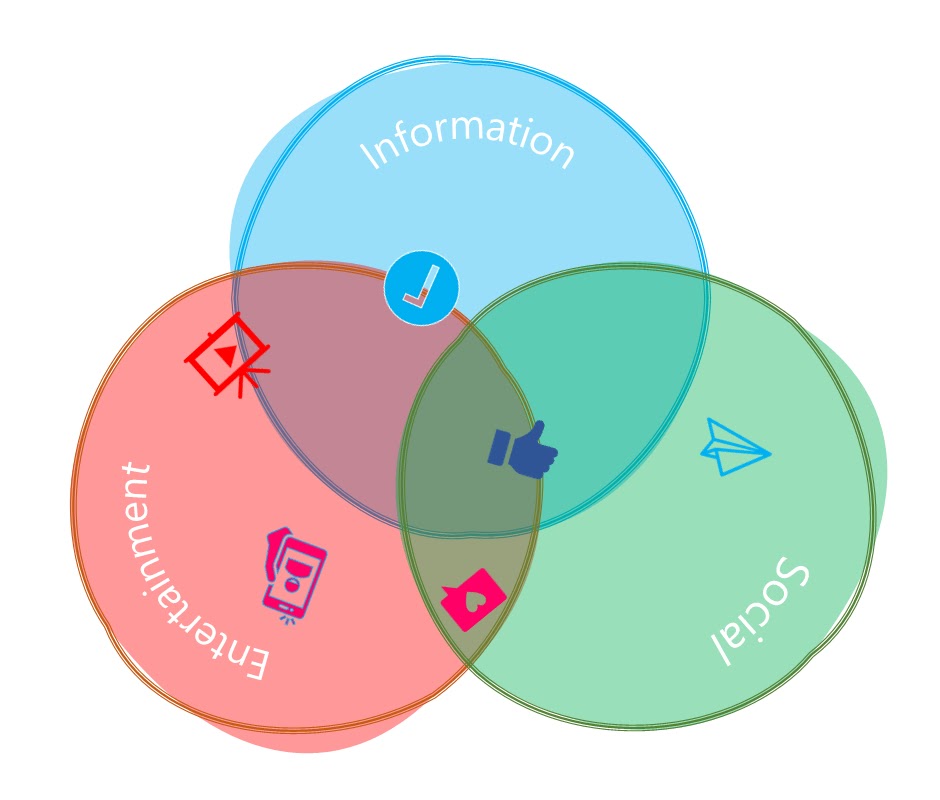I’ve been trying to talk myself into the social-media death-spiral idea, but it feels like the wrong framework to describe what is essentially just an evolution of the way people use the internet. To suggest that momentary stalls or plateaus, or even declines in platforms, spell certain death is, to some degree, to buy into Silicon Valley and Wall Street’s notion that anything other than perpetual hockey-stick growth is a death knell (and I find that outlook generally toxic and grating).
There are a few things that I think are probably going on, instead. The first is that some platforms just have a natural network decay. Facebook was, at first, novel and exclusive (I got an invite from a friend who was in college! Very exciting!). Then, it grew and took on a different kind of utility (you could find all kinds of people on it from your past, or whom you met at a party!). Soon, every human you knew was on it, and, overnight, it morphed into a lot of people’s main news source. The loudest, angriest people—many of whom didn’t quite understand how to talk to people online—made it an unpleasant place to be, so a lot of people left or stopped engaging, and the loudest voices got louder.
The same thing is happening on Twitter. One thing I’ve noticed a lot is that a lot of my favorite power users have become power lurkers. They haven’t given up the platform, but they realize that posting is mostly a losing game full of professional liabilities, endless and futile fights, and diminishing returns. And that’s grim because, for those who do post, we’re much more likely to encounter the loudest, angriest, most politically charged voices in response, which in turn makes the place less fun to be around!
Charlie Warzel
I find this notion of the impending doom of social media hilarious. While a minority is arguing about the supposed death of social networks on Twitter, regular people are perfectly happy sharing and chatting over private messages. The only ones caring about this non-issue are those who obsess over status and signaling: politicians, celebrities and journalists, companies looking for their next incremental sale.
I believe that this whole discussion stems from a misrepresentation of what social networks are. The original meaning, of a digital space to connect with friends and acquaintances and share personal moments about their lives, has long been diluted and relegated to a secondary role on these sites. The majority of these personal interactions has shifted towards private messaging for quite some time – the lines can be somewhat blurry as some messaging services are tightly integrated into ‘social networks’ (Facebook Messager, Twitter DMs, Instagram chats).

I would say that public activity on ‘social networks’ fulfills three major functions that overlap only to some extent. The social component is still there, though in diminished capacity, as people share publicly and interact through reactions and comments. But users are also passively consuming content, either for entertainment or general information, which has little to do with social interactions (apart from maybe sharing funny videos with friends). You can map out roughly how each ‘social network’ covers each of these three needs:
- As the most mature in the space, Facebook caters to everything, especially for those who don’t have accounts elsewhere – but trying to do all at once means it’s hardly the best in any category.
- Instagram started out as a relatively social-focused network as well, but evolved over time towards more entertainment with video content and influencers. The ‘news’ component feels the least developed here – unless you count celebrity gossip as worthwhile information. A feature like Stories shows how these roles can overlap at times, as they can be used either to share private updates for friends or more publicly for memes and funny clips.
- Twitter is a wild mix of information, from breaking news to research papers, and entertainment, from memes to hot takes and snarky remarks.
- YouTube feels similar to Twitter, but for video content, and leaning more towards entertainment and learning rather than quick news.
- The newest and fastest growing contender, TikTok, prioritizes entertainment to the point that social is barely present, but information consumption is becoming a part of the experience there as well.
These are of course my own observations, and other people may use each site differently depending on their preferences and needs, but this is just another reflection of the complexity of the landscape and its evolution over the years. Starting from the vision of the owners, through the interaction with their growing communities, which at times push back hard against unpopular product updates, these networks have developed into mostly unique experiences. Which also makes it that much harder to find an alternative for Twitter now that its existence appears uncertain and its future bleak.
Post a Comment